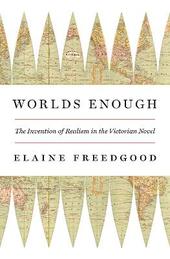
|
Worlds Enough: The Invention of Realism in the Victorian Novel
Paperback / softback
Main Details
Description
A short, provocative book that challenges basic assumptions about Victorian fiction Now praised for its realism and formal coherence, the Victorian novel was not always great, or even good, in the eyes of its critics. As Elaine Freedgood reveals in Worlds Enough, it was only in the late 1970s that literary critics constructed a prestigious versi
Author Biography
Elaine Freedgood is professor of English at New York University. Her previous books include The Idea in Things: Fugitive Meaning in the Victorian Novel and Victorian Writing about Risk: Imagining a Safe England in a Dangerous World.
Reviews"Spiced with citations of critics past and present, this cogent, necessary book is ideal for students in Victorian surveys because it both covers the field and stretches it out to the global and the decolonizing."---N. Birns, Choice Reviews "[A] provocative and important new book on Victorian fiction."---John O. Jordan, Dickens Quarterly "Written with her trademark combination of sharp-wittedness and bluntness, Elaine Freedgood's short but ambitious book, Worlds Enough: The Invention of Realism in the Victorian Novel, aims to show that the prevailing understanding of the Victorian novel's realism is fundamentally wrong and, more important, pernicious in its effects. . . . Elaine Freedgood is an iconoclastic, inventive critic whose work is suffused with moral and political urgency. "---Daniel Hack, Modern Philology "What this book is especially good on is the experience of process in the reading of the [Victorian] novel."---Philip Davis, Review of English Studies "Rigorously theoretical, enlivened with an eye for quirks of material, social, and textual meaning, and full of keen perceptions about a wide range of novels. A luminous provocation, it will spark much discussion and debate."---John Kucich, Victorian Studies
|